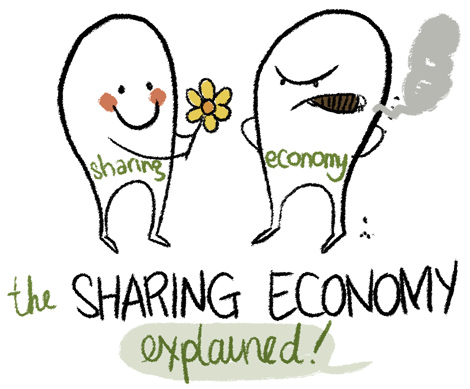
You learned it in preschool, and now it’s back in a more grown-up way. From cars to kids’ clothes to cold hard cash, sharing is caring more than ever before. The sharing economy builds and leverages social bonds, creates a more democratic marketplace, reduces the sheer amount of stuff we need to buy, and creates more resilient communities in the process. It’s the bastard child of market disruption that began on the web decades ago (Napster, anyone?), but it’s a child with a conscience.
The kind of “collaborative consumption” we see in services like Zipcar and Airbnb has the potential to revolutionize the way we live our lives. But it’s not all bartered canning equipment and blissful couchsurfing, folks — the sharing economy is a serious moneymaker for individuals and companies who “share” their stuff for a price. Investors, who prefer the wonktastic phrase “underused asset utilization” to “sharing economy,” say the market amounts to $100 billion to $500 billion worldwide, and it’s growing fast.
Here’s a breakdown of the various sharing philosophies, a few of the reasons that sharing is blowing up right now, and some ways that you can get in on the action. Just drag your pointer over the pictures for more info.
[protected-iframe id=”671aa296f6e2e39356f63268f4fe0141-5104299-41069349″ info=”http://s3.thingpic.com/images/Et/oq71bFGE5MaPj8Q3zTmUiZWr.png#tl-345963538369478658;626328886″ height= “1734” width=”470″]



